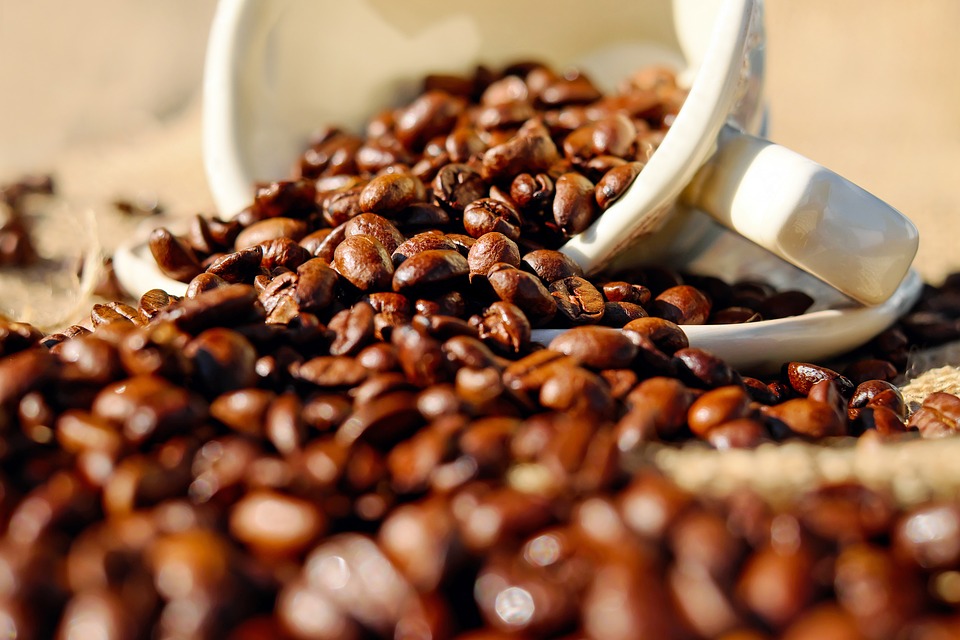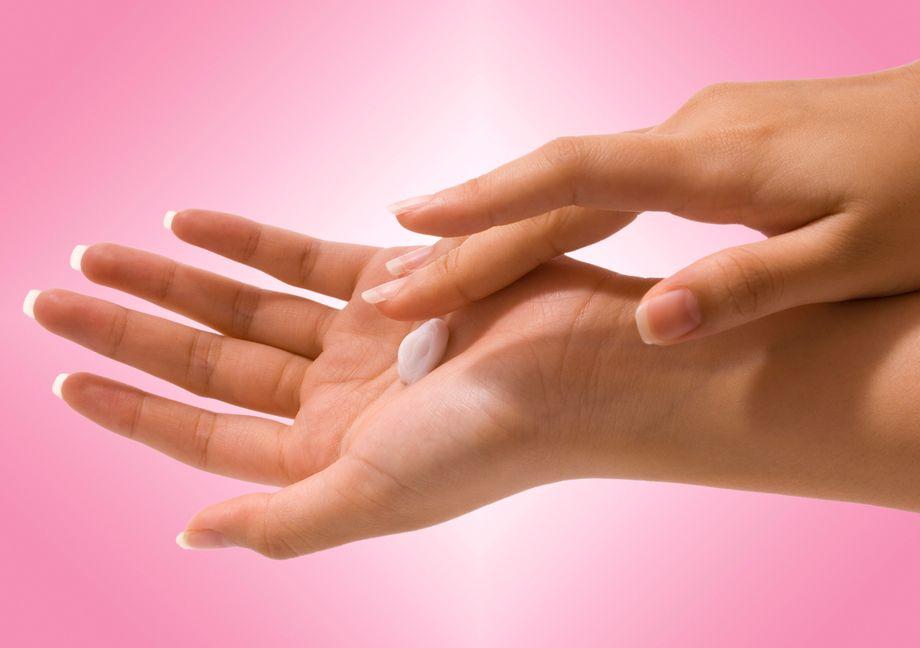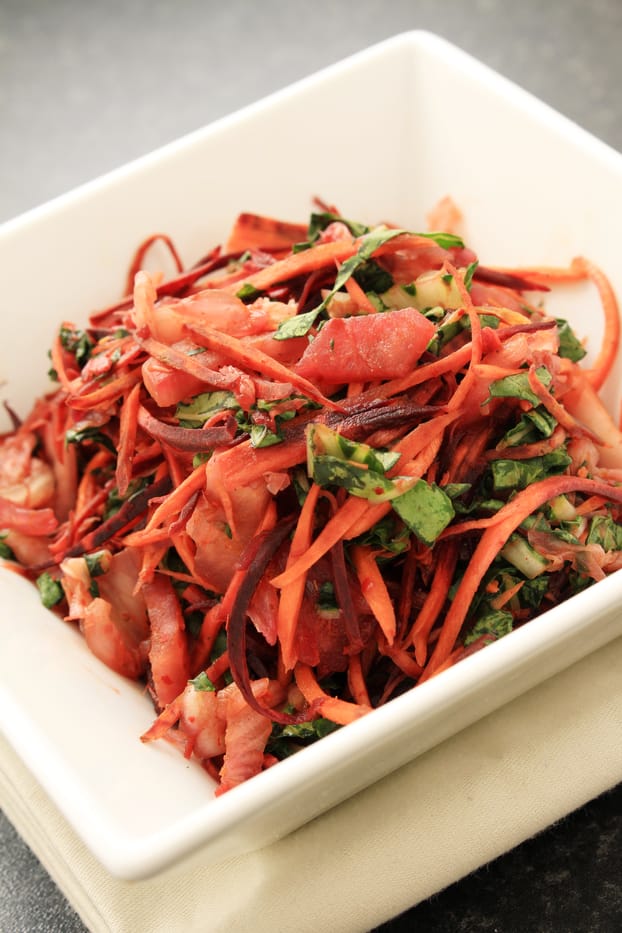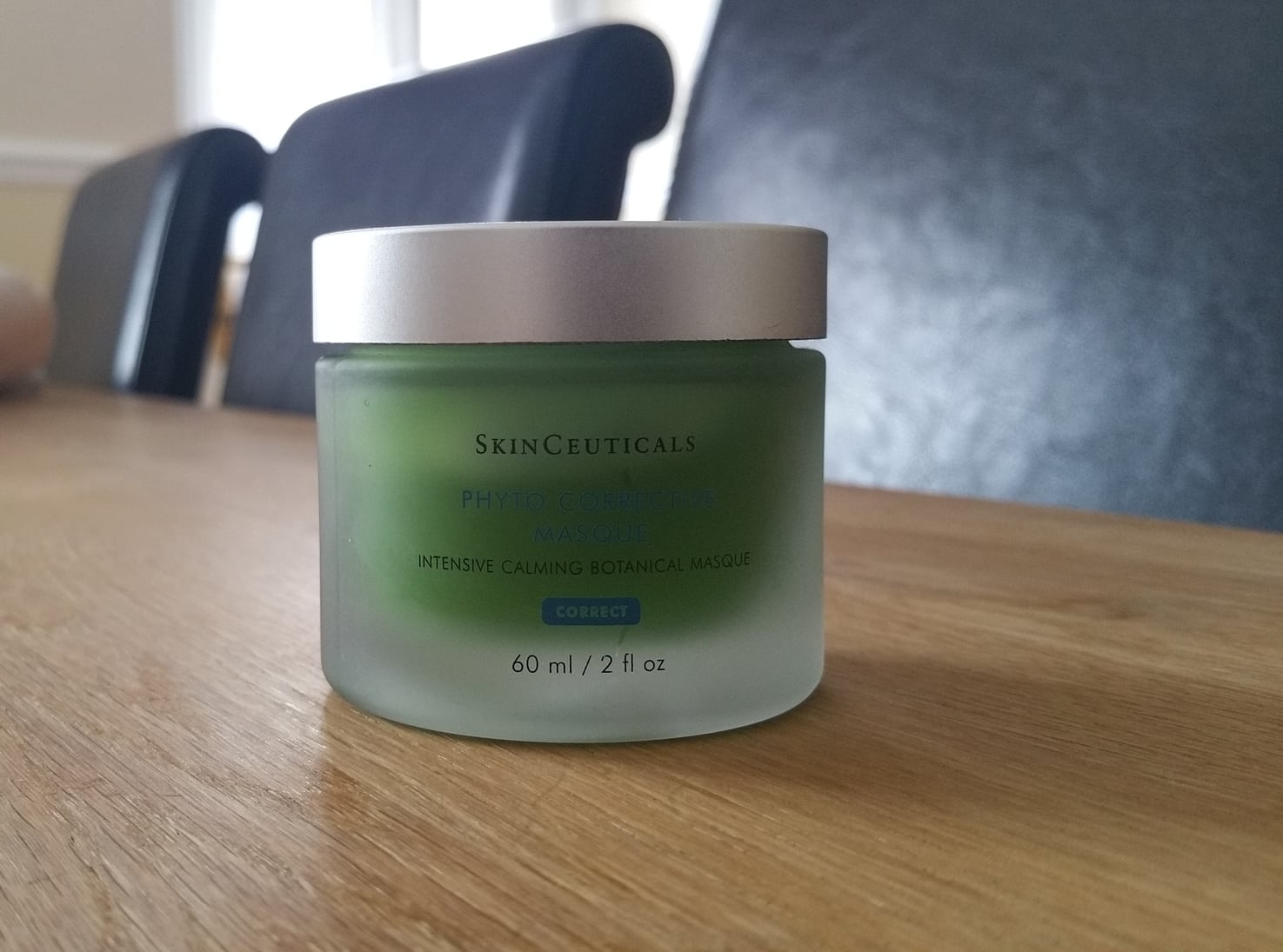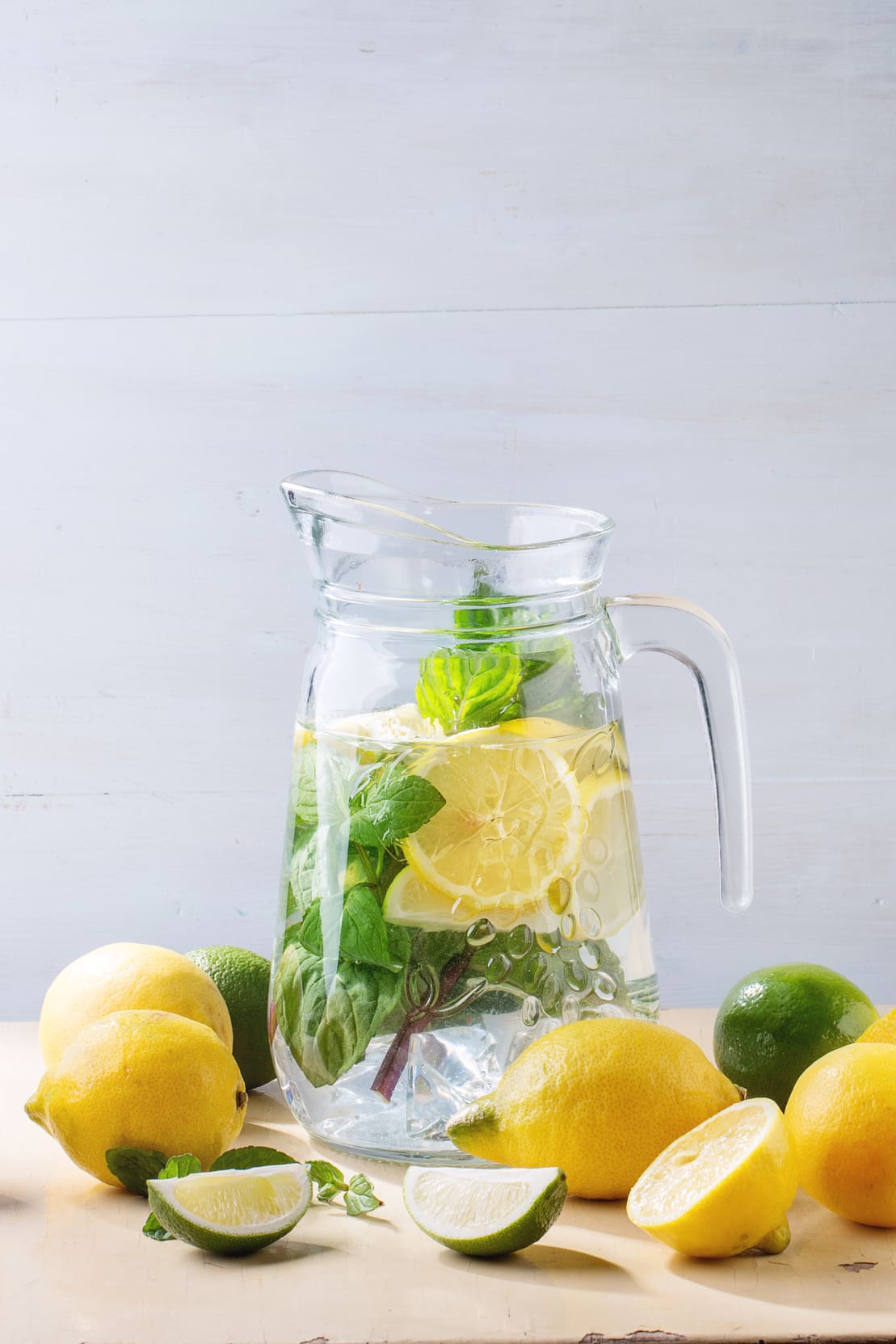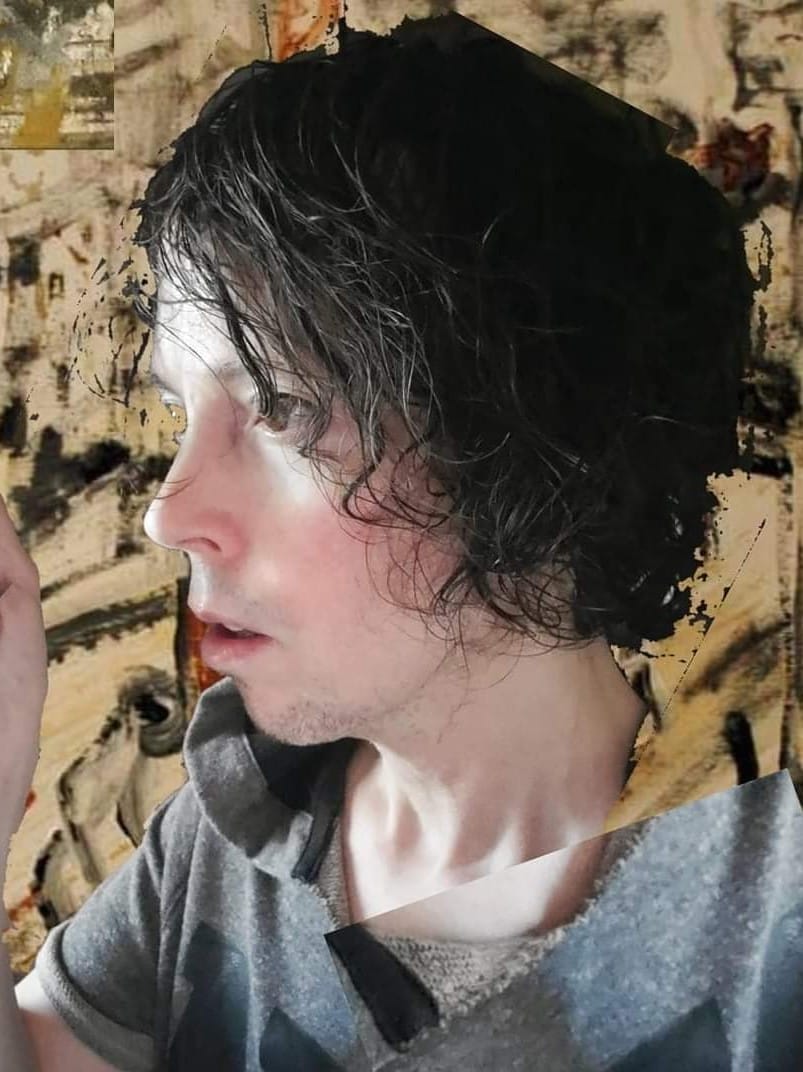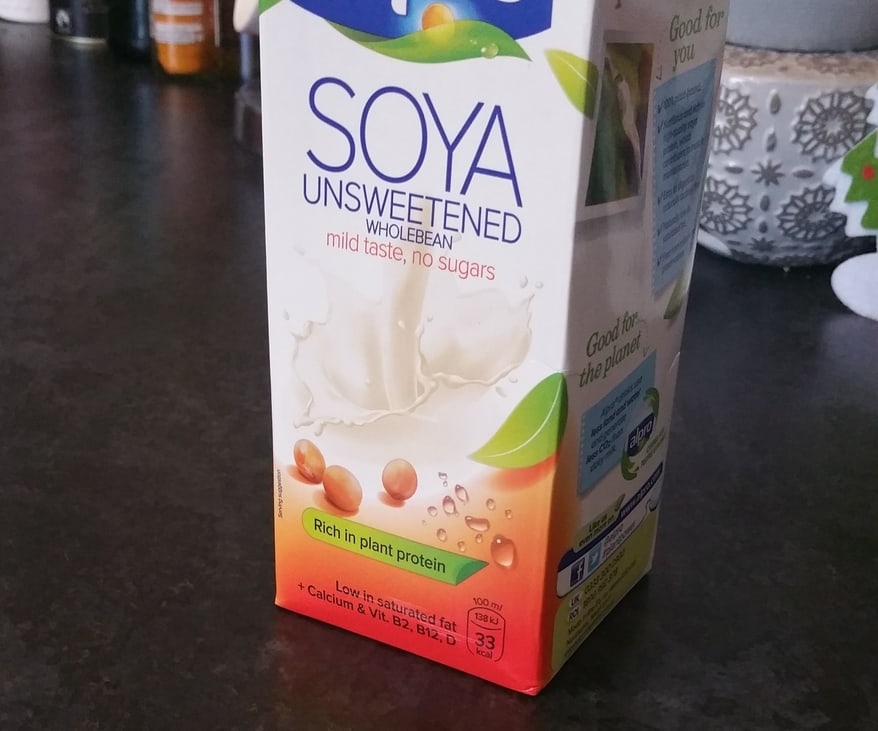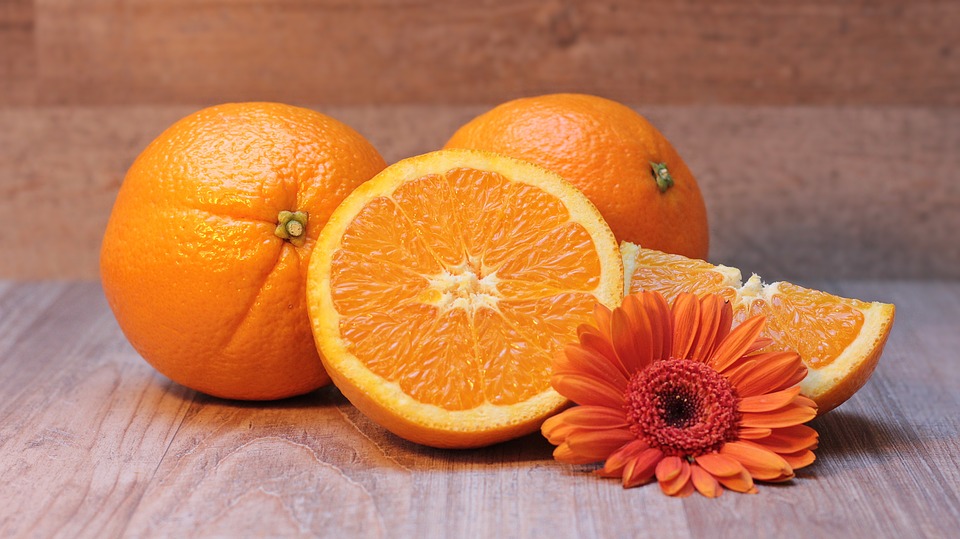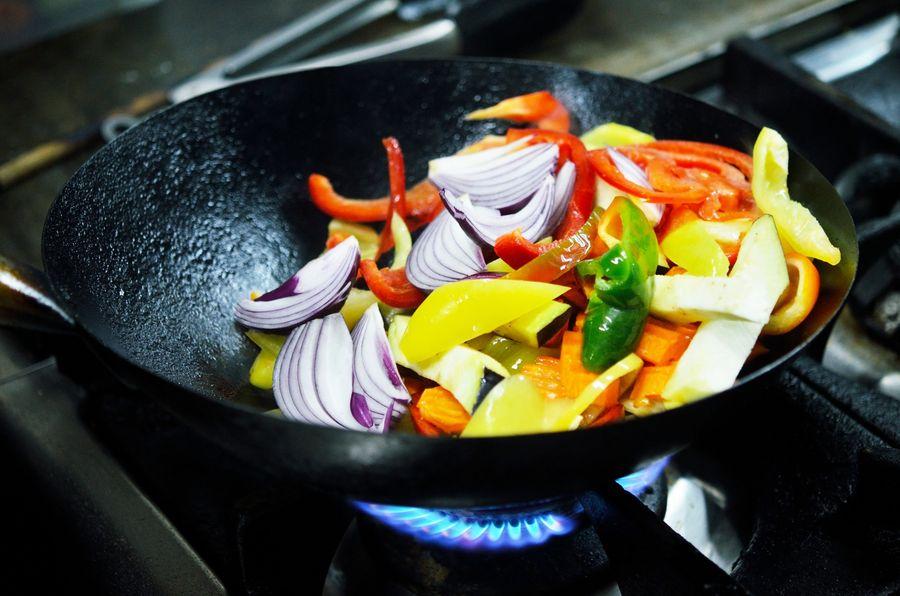Disclosure: This article may contain affiliate links. If you decide to make a purchase, I may make a small commission at no extra cost to you.
Acne is an extremely common condition that many teenagers will grow through and something that can continue into adulthood, but at some point, it usually goes away or improves significantly as you get older. Changing your diet and becoming a vegan can improve your skin, but it can also cause acne breakouts that are extremely difficult to manage.
However, before resorting to medications, there are a few simple reasons why you could be breaking out and some proven ways you can put a stop to it before it starts to ruin your skin.
The reason I’m writing this is article is because I’ve been there, more than once! In my teenage years, I suffered from terrible acne until I cleaned up my diet.
To my horror, the acne returned with a vengeance many years later in late 2016. Only after months of trying out various skincare products, changing my diet, and taking zinc supplements, that I eventually found out the reason for my acne returning.
Reasons why you could be breaking out with acne after going on a vegan diet
Below are some of the main reasons why you’re suddenly breaking out with acne and what you can do about it. But before I continue, if you’re just starting a vegan diet, sometimes it’s normal to have an initial breakout in the first few weeks, but as your body adjusts to the new diet, your skin will clear up.
So don’t panic if you’re still early in your transition, but carry on reading so you can avoid some of the common reasons why people’s skin worsens on the diet.
#1. Zinc deficiency
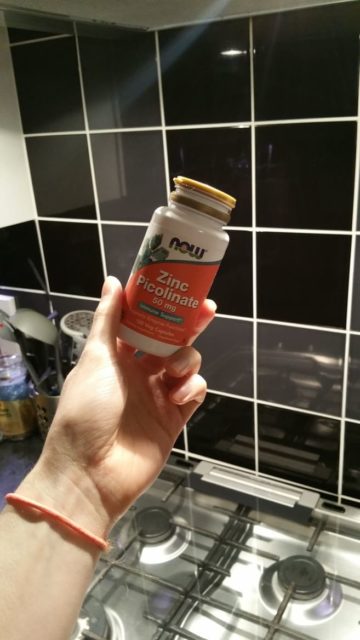
Zinc deficiency is fairly common in vegans according to research comparing vegans, vegetarians and omnivores. In one study, researchers found that 47% of vegans were low in zinc! [1].
We know from research looking at zinc and acne that there is a strong connection between the two. The research dates as far back as 1997, showing that acne patients who were given zinc supplements saw their condition improve from a score of 100% to 15% in just 12 weeks.
Another double-blind, placebo-controlled trial in acne patients saw zinc reduce acne score by 70%, which was a similar score to tetracycline [2, 3].
Check out my article on how I cured my acne by taking a supplement called zinc picolinate.
Since many vegans eat a diet that contains a significant amount of copper from all the plant-foods and a low amount of zinc-containing foods, the risk of developing a secondary zinc deficiency could be even higher what was found in that study that I cited.
#2. Vitamin D deficiency

Although it’s common knowledge that acne improves after sunlight exposure or blue-light therapy, there are risks in doing this in that it elevates the risk of post-inflammatory hyperpigmentation.
The improvement in acne with sunlight is also not entirely down to just the exposure to solar radiation, but research suggests that an increase in levels of vitamin D helps modulate the immune system and improve the body’s ability to kill the bacteria which cause acne.
In a study published in 2016, it was found that 48.8% of patients with acne had a vitamin D deficiency, whereas only 22.5% of the healthy control group had a vitamin D deficiency.
The serum levels of 25-hydroxyvitamin-D in acne patients were also inversely correlated with acne severity.
So, if you’re noticing that your acne is starting to worsen in the winter, this could be one of the reasons.
In a follow-up study, 39 of the patients who presented with a vitamin D deficiency were given 1000 IU of vitamin D per day and there was a significant improvement in inflammatory lesions [4].
#3. Vitamin supplements that can cause acne breakouts
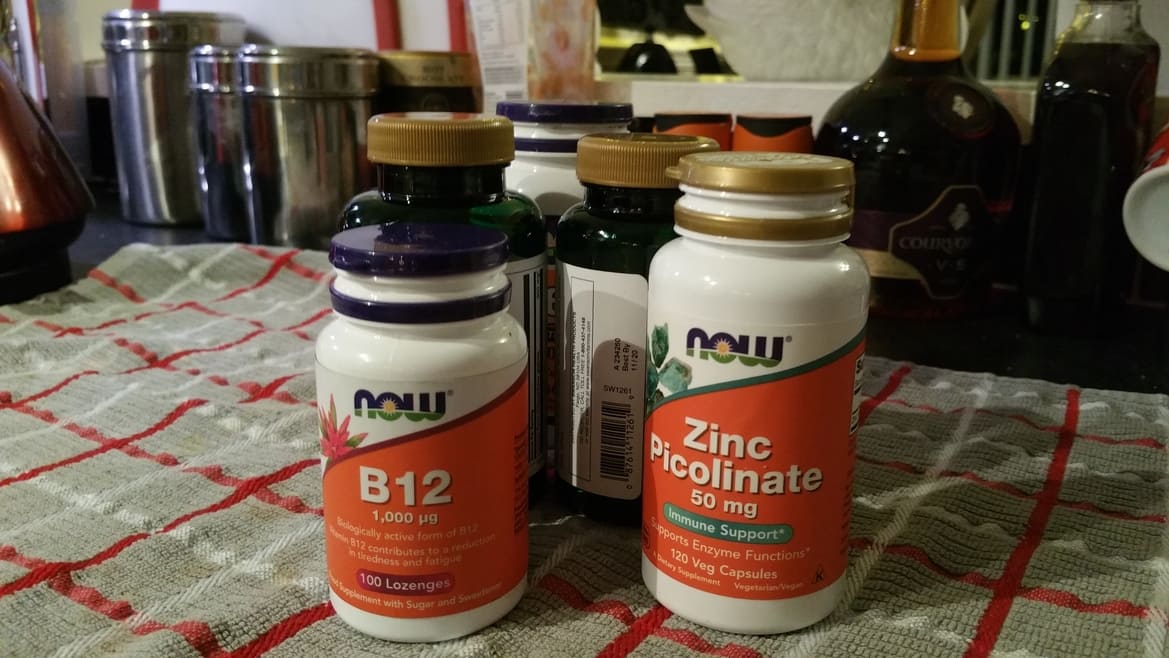
While many supplements might improve acne, such as zinc, other supplements can actually worsen acne in some people when taken in excess. Some of the main culprits are listed below!
Vitamin B12
Every vegan should be taking a vitamin B12 supplement because there is a significant risk of developing serious and permanent damage from a B12 deficiency.
However, you should be aware that taking too much vitamin B12 has been linked with the worsening of acne in humans [5]. And that after discontinuing B12 supplements, acne would go into remission.
In patients who were taking acne medication such as isotretinoin, supplementing B12 and Folate has bee useful in preventing a folate deficiency and an increase in homocysteine levels [6].
If you are taking B12 supplements (which you should be), try to lower your daily dose or take it every other day and monitor vitamin B12 levels with blood tests.
Vitamin B6
Although the evidence for B6 causing acne isn’t as strong as B12, there is some evidence that mega-dosing B6 can lead to acne which fails to respond to standard medical treatment.
Discontinuing B6 has been associated with rapid improvement in acne symptoms [7, 8].
Biotin
Biotin is an important vitamin in the human body that helps you convert the food you eat to energy. It’s also a vitamin that some vegans take to help improve hair growth.
Multivitamin supplements or vegan hair supplements containing biotin will have as much as 5000 mcg of biotin and this can cause cystic acne in some people because it increases sebum production.
It’s important to start on a lower dose and to combine zinc with biotin to help reduce the risk of breaking out in acne.
Over time, some people adapt and the acne goes away by itself. But having a zinc deficiency will significantly increase the chances that you break out.
#4. New foods you’ve added to your diet are causing you to break out
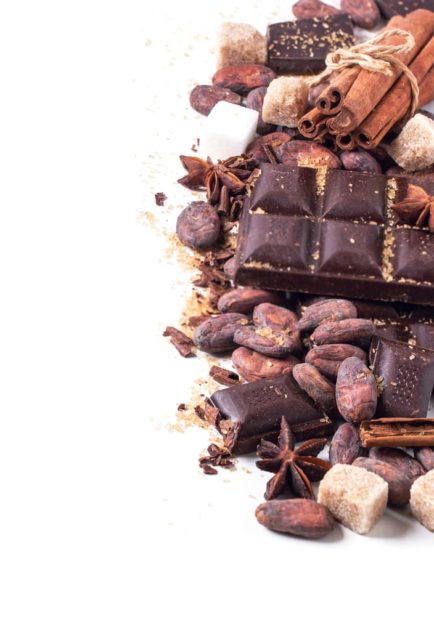
This one is a bit more difficult to identify because sometimes acne can take weeks before it reaches the surface and develops into a full-blown pimple, but there are a few common foods that some people claim worsen their acne.
There are also some foods that are proven to worsen acne in people who are prone to developing it.
Dark chocolate
In the raw food and vegan community, chocolate was a big hit with many people consuming a lot of it because of its health benefits. And yes, dark chocolate does have some health benefits, but like everything, moderation is a good thing.
In one study published in 2016, twenty-five acne-prone males were given 25 grams of 99% dark chocolate for four weeks and then their acne scores were assessed.
In just two weeks there was already a significant worsening of acne and this trend continued up to the 4-week mark when the study concluded [9]
In a double-blind, placebo-controlled study published in 2014, patients with very mild acne were given 100% cocoa.
The subjects who binged one-time on chocolate saw an increase in papules, comedones, pustules, and nodules by day 4, from 3.9 to 10.5.
The number of non-inflammatory lesions also increased from 3.3 at baseline to 7.9 on day 4 and 8.6 on day 7.
Given these findings, if you are prone to developing acne, you should limit your consumption of chocolate [10].
Fruit smoothies and high-sugar drinks
Sugar is one of the main culprits for worsened acne due to its effect on insulin and IGF-1, as well as its immune system suppressing effects.
For some vegans who are a bit busy, it might be tempting to pick up a fruit smoothie from the store, but the fact is that many of these products contain a large amount of sugar and should, therefore, be consumed in moderation.
Also, think about combining them with a lot of greens like spinach or kale (around 30-40%), as this will help reduce the spike in blood sugar. Adding blueberries can also greatly reduce the effect of fruit smoothies on blood sugar.
Too many foods high in fat
A vegan diet can be a great way to consume lots of foods that are rich in monounsaturated and polyunsaturated fats such as ALA and Omega 3’s, but overconsumption of omega 3 has been linked to worsening of acne people who already have severe acne, but an improvement in people with mild forms of acne.
There are anecdotal reports that high-fat vegan diets can worsen acne, but research needs to be done to confirm whether this is the case or not.
Given the conflicting findings, experiment to see if lowering fat intake. Consume no more than 10-25% of your total calorie intake.
Hard to identify foods that are causing you to break out
Sometimes it’s not so simple and identifying the food causing the problem can be difficult, especially if you have a diverse diet.
In this case, after eliminating some of the main foods that can cause acne, try an elimination diet where you start off with a few basic (safe) foods and then add more to the diet over time.
This whole process may take 1-2 months, but it’s better to do it slowly. Just make sure that you are consuming enough calories and consider taking a vegan multivitamin to prevent deficiencies.
If you’ve added various kinds of vegan foods that are packaged (ones that come in a box that are vegan alternatives), carefully look at the ingredients.
Sauces can also contain ingredients that may worsen acne. In my own experience, using brown sauce would also cause me to break out within days and it would be quite severe.
#5. Check your vegan skincare products and makeup
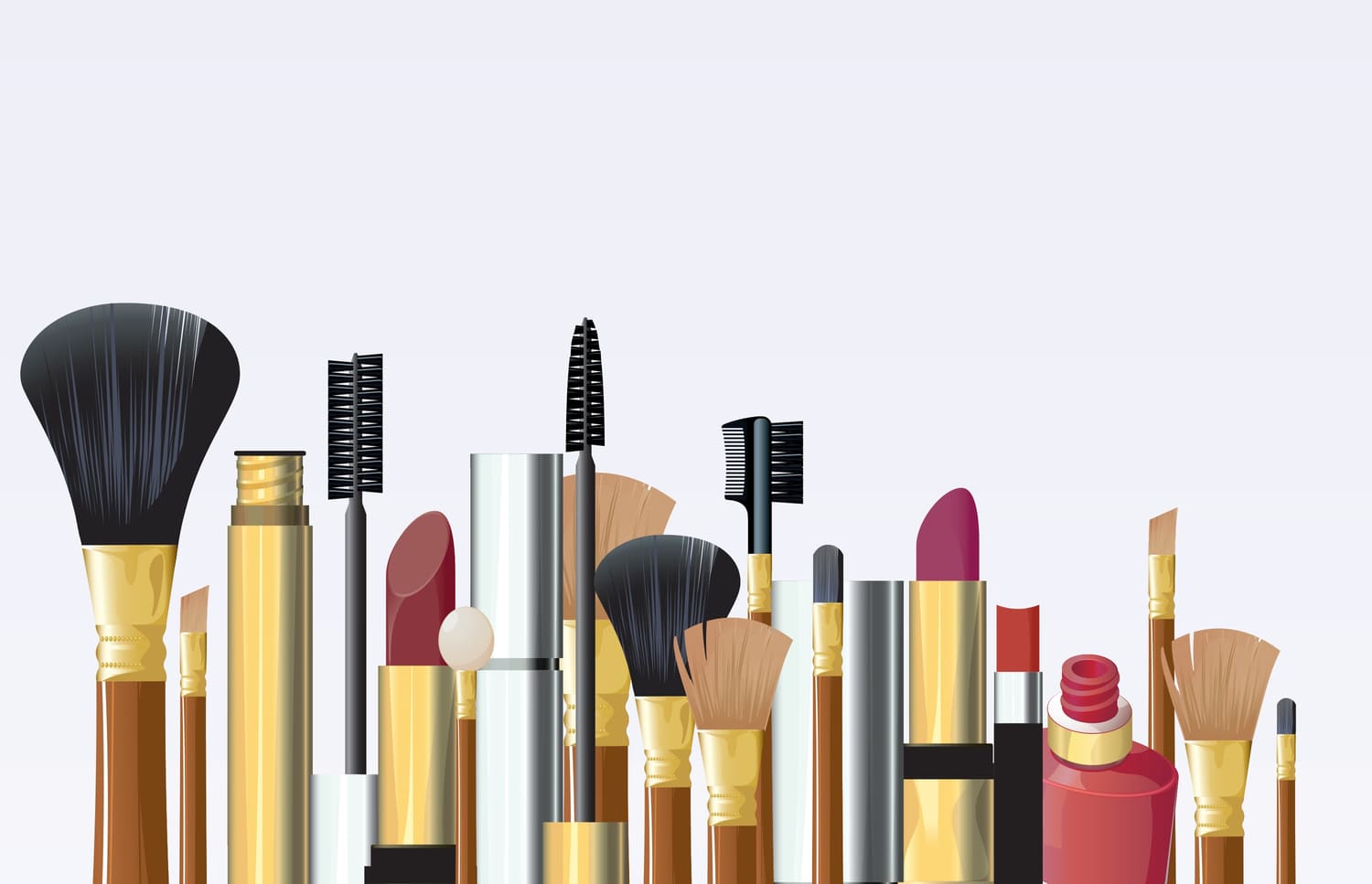
Many vegans will switch to vegan-friendly skincare products and makeup after making the transition.
Sometimes the products have not been tested in the same way and have not been dermatologically tested or have ratings that signify if it’s fine for people with acne-prone skin.
While natural is good, some products may contain ingredients that block pores and cause skin reactions in some people. For example, olive oil is often used as an ingredient in many moisturizers, but olive oil is also known to block pores in the skin and worsen acne.
Check out my article to learn how to calm down red and inflamed skin.
Ingredients in vegan skincare products that can cause acne
- Olive oil
- Almond oil
- Algae extract
- Wheat germ oil
- Shea butter
Also look carefully at the dates and the condition of your makeup products and brushes, as these can contain a lot of bacteria and oils that will worsen your acne.
Conclusion
Going on a vegan diet often leads to a big improvement in skin complexion and can help beat acne due to a reduction in IGF-1 after ditching animal products.
Unfortunately, some vegans can experience a worsening of their skin, and the problem can be difficult to identify.
All of the reasons I have identified above have been linked with acne and should be considered a potential cause by themselves or together.
Zinc deficiency is especially prevalent in the vegan community and could be one of the primary reasons some people experience acne breakouts after transitioning to do the diet. Vegans supplementing high doses of B6 and B12 might also be a significant cause of acne.
